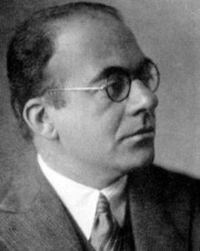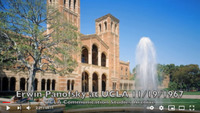- Person
- Male
- RIDIM
- 30 March 1892
- Hannover
- 14 March 1968
- Princeton, New Jersey
- United States of America | Germany
- German-Jewish
- Professor
- Iconology
- English | German
-
- Q57656 ⟶ Click Here
-
- 76321051 ⟶ Click Here
- No
-
-
Erwin Panofsky (March 30, 1892 in Hannover – March 14, 1968 in Princeton, New Jersey)[1] was a German-Jewish art historian, whose academic career was pursued mostly in the U.S. after the rise of the Nazi regime.
Panofsky's work represents a high point in the modern academic study of iconography, which he used in hugely influential[2] works like his "little book" Renaissance and Renascences in Western Art and his masterpiece,[2] Early Netherlandish Painting.
Many of his works are still in print, including Studies in Iconology: Humanist Themes in the Art of the Renaissance (1939), Meaning in the Visual Arts (1955), and his 1943 study The Life and Art of Albrecht Dürer. Panofsky's ideas were also highly influential in intellectual history in general,[3] particularly in his use of historical ideas to interpret artworks and vice versa.
⟶ Wikipedia
-





